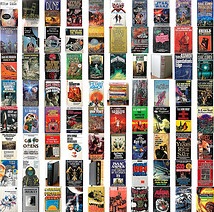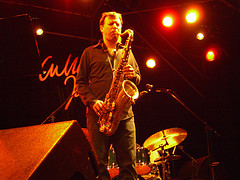Jan 25, 2011 Comments Off on The Myth of Freedom
The Myth of Freedom
The New York Times ran a story on Friday about the spotlight Glenn Beck had cast on an “obscure CUNY professor,” Frances Fox Piven, and how this had attracted some very hostile attention from Beck’s followers. One fine fellow had left this comment on Beck’s site, The Blaze, “Somebody tell Frances I have 5000 roundas ready and I’ll give My life to take Our freedom back.”
The thing that struck me about this quote wasn’t the threat of gun-related violence but the idea that we need to take our freedom back. As I told a friend the other night, I can’t relate to this sentiment at all. Specifically, I don’t feel any less “free” today than I did before Barack Obama became president. Indeed, my friend responded that he felt more free since Obama was elected.
I’m not sure if my perception of the Tea Party (or Tea Party-ish Republicans) is simply a caricature invented by the liberal media, but it seems like this notion of freedom is near and dear to them and that they see the Obama presidency as an assault thereupon. However, I’m hard-pressed to name a freedom that has been lost during the last two years (and the “individual mandate” in the healthcare bill doesn’t count since it hasn’t gone into effect yet – though, even then, it’s really just a tax issue for those who don’t have insurance. Of course, freedom from taxation is a freedom we have never truly enjoyed).
Now, I love freedom just as much, if not more, than the next guy, but I also believe that freedom is relative and that actual freedom is different from formal freedom. We are all formally free, for example, to own property here in the United States, but one’s ability to actually exercise that freedom is constrained by one’s available resources. Similarly, we are formally free to pursue whatever career we wish, but our ability to do so depends on education, physical or intellectual abilities, available resources (again), and so on.
In other words, while we have not lost any fundamental formal freedoms over the last two (or more) years, the economic downturn has definitely impinged on the ability of millions to actually exercise said freedoms. Having lost my own job two years ago, I can relate to that feeling. However, I don’t understand how assaulting an economics professor, let alone trying her for treason, would restore that dimension of freedom.
Having said that, I do think that lashing out would at least give someone the sense that they were reclaiming the most fundamental freedom that humans enjoy: the freedom to act. Nevertheless, this raises another question about freedom and one that few have the existential wherewithal to adequately face let alone answer: If we are parts of the physical universe, and every thought or action cannot be separated from its physical underpinnings (think: neurochemistry), isn’t possible that our sense of freedom is itself an illusion imposed by the physical system that enables us to sense anything at all? What if, for instance, the evolutionary advantage that has made human beings the dominant species (at least among vertebrates) is not that we can act freely, but that we can believe we act freely?
In other words, the freedom to act that the lone gunman seizes could be, and in most cases probably is, just the symptom of an underlying neuro-chemical or otherwise conditioned physical state and thus not free in any sense of the word other than when physicists speak of an object, subject to the gravitational pull of another object, being in “free fall.”
And that’s a freedom that, frankly, no one can take from you.





 I went to see Rush at the Garden last night. It was good, but it wasn’t sublime.
I went to see Rush at the Garden last night. It was good, but it wasn’t sublime.